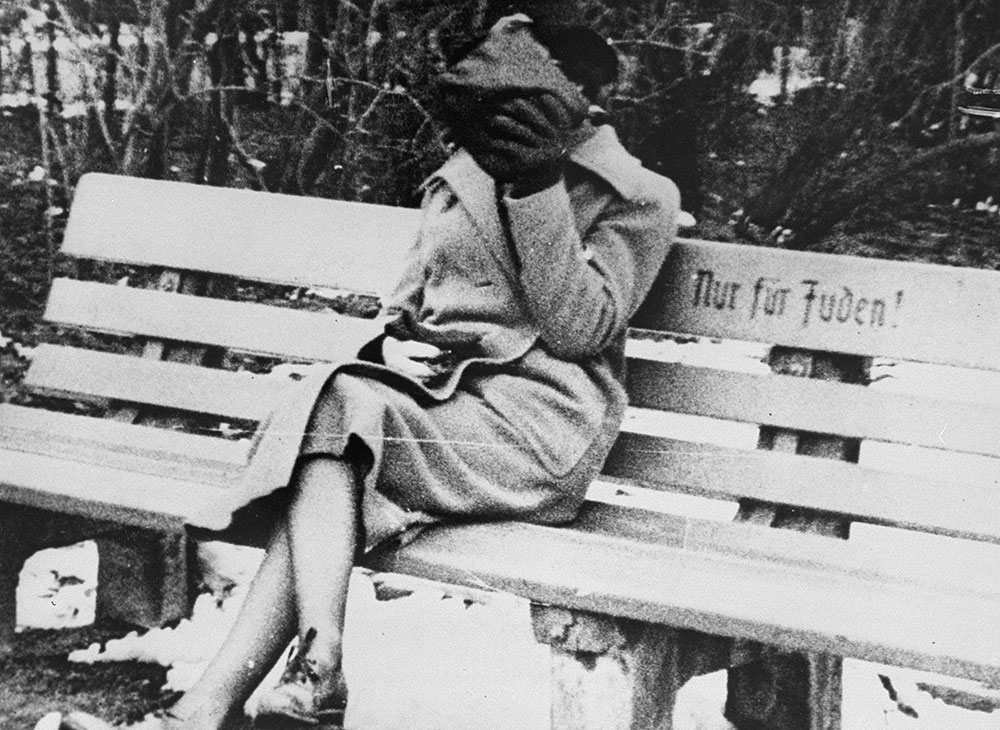Voices on Antisemitism features a broad range of perspectives about antisemitism and hatred. This podcast featured dozens of guests over its ten-year run.
-
Alan Kraut
January 7, 2016
Alan Kraut is University Professor of History at American University. He is a specialist in U.S. immigration and ethnic history, and the author of Silent Travellers: Germs, Genes, and the "Immigrant Menace." Kraut offers some context for the politics of fear and xenophobia that often accompany immigration debates.
-
Dervis Hizarci
December 3, 2015
Dervis Hizarci believes that openness to dialogue is key to his work as an educator. First at the Jewish Museum Berlin and now with KIgA, the Kreuzberger Initiative against Antisemitism, Hizarci works to confront hatred and ignorance, which can breed radicalism and violence.
-
Despina Stratigakos
November 5, 2015
Despina Stratigakos is an architectural historian at the University at Buffalo. Her recent book Hitler at Home examines the efforts of Hitler's interior designer Gerdy Troost to cultivate Hitler's image as both a refined statesman and a man of the people.
-
Erica Lehrer
October 1, 2015
Erica Lehrer founded the Centre for Ethnographic Research and Exhibition in the Aftermath of Violence at Concordia University. In 2013, she curated “Souvenir, Talisman, Toy,” an exhibition of Polish-made figurines depicting Jews. And she is the author of Jewish Poland Revisited: Heritage Tourism in Unquiet Places.
-
Sam Ponczak
September 3, 2015
Sam Ponczak was only two years old when World War II broke out in Poland, and for many years he didn’t think of himself as a Holocaust survivor. But later in life, when asked to speak to schoolchildren about his experiences, Ponczak began to embrace his story of survival as part of the important narrative of the Holocaust.
-
Miriam Isaacs
August 6, 2015
Miriam Isaacs was born to Holocaust survivors in a displaced persons camp in Germany. Trained as a linguist, she taught Yiddish for many years at the University of Maryland. More recently, she has been translating the Stonehill Jewish Song Collection, housed here at the U.S. Holocaust Memorial Museum.
-
Floriane Hohenberg
July 2, 2015
Floriane Hohenberg worked for many years for the Organization for Security and Co-operation in Europe on human rights and diversity issues and especially on antisemitism, racism, and xenophobia. Today, she helps governments to collect data and statistics on antisemitism and to develop teaching materials to confront it.
-
Mohammed S. Dajani Daoudi
June 4, 2015
As a young man at the American University of Beirut in the 1960s, Mohammed Dajani was a student activist and a member of Fatah, fighting for Palestinian liberation. But his hardline views softened after the death of his parents, who were each, in turn, cared for by Israeli doctors and emergency personnel. Dajani has evolved into a voice of moderation, working to end conflict through sharing personal narratives. But it is not easy to be a champion of moderation.
-
Daniel Owen
May 7, 2015
Daniel Owen is a photojournalist who spent two years documenting the life, culture, and celebrations of the Jewish community of Oradea, Romania. The Jewish population there has dwindled from a high of 30,000 in the 1940s—or one third of the population of the city—to only a few hundred today.
-
Robert Örell
April 2, 2015
Robert Örell got involved with the Swedish white power movement in his early teens. Now he works as director of Exit Sweden, the very organization that helped him leave neo-Nazism behind. Since 1998, Exit has helped hundreds separate from white supremacist gangs. Today, they are looking into ways their work might apply to other extremist organizations, including ISIS, religious cults, and criminal gangs.

